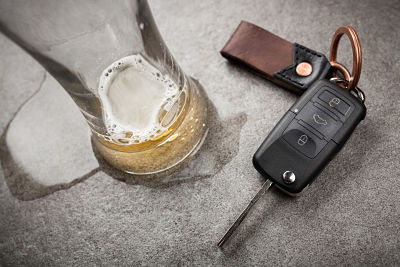In deciding whether or not to charge a person with DWI, Houston-area law enforcement officers will often rely on the results of a horizontal gaze nystagmus (HGN) test. This is where the officer displays a penlight in front of the driver’s eyes and asks the driver to follow said light as the officer moves it around. The point of this test is to see whether or not the driver makes a certain type of involuntary twitch, which is an indication they have a high blood-alcohol content.
Appeals Court: Any Mistakes Made by Arresting Officer Were Legally “Harmless”
There are specific procedures an officer must follow when administering an HGN test. Failure to follow these procedures can affect the admissibility or weight of the test results in court. That said, if there is other evidence of a defendant’s guilt, even an inadmissible HGN test may not be enough to avoid a conviction.
A recent decision from the Texas 14th District Court of Appeals here in Houston, Ochoa v. State, illustrates this point. In this case, a police officer pulled over a vehicle that apparently had an expired registration. During the course of this stop, the officer said he observed the driver of the vehicle–the defendant in this case–had “slurred speech, a strong odor of alcohol, and red, glassy eyes.”
The defendant voluntarily admitted he had “consumed 72 ounces of beer at a bar before driving.” This prompted the officer to conduct a series of field sobriety tests, including an HGN test. The defendant also consented to a breath test, which showed he had a blood-alcohol content of more than 0.10 percent (the legal limit in Texas is 0.08 percent).

Based on all the evidence, prosecutors charged the defendant with DWI. At trial, the arresting officer testified that he “failed to comply with one requirement for HGN testing.” The trial judge nevertheless admitted the results of the HGN test. A jury subsequently found the defendant guilty of DWI.
On appeal, the defendant argued the trial judge erred as a matter of law in admitting the test results. The 14th District disagreed and affirmed the defendant’s conviction. “[E]ven if the trial court erred in admitting [the officer’s] testimony regarding the test, any error was harmless,” the appeals court said. That is to say, it was unlikely that the officer’s testimony regarding the HGN test “substantially swayed or influenced the jury’s verdict” when taking into account all of the other evidence.
Specifically, the 14th District pointed to the officer’s observations of the defendant prior to the test, as well as his voluntary admission that he had been drinking. The officer also performed other field sobriety tests, which the defense did not challenge. Given all this, the appeals court said there was no reason to second-guess the jury’s verdict.
Speak with a Houston Criminal Defense Lawyer Today
The defendant made a common, but critical, error in this case when he admitted drinking to the police officer. Always remember you have the right to remain silent when questioned by law enforcement. Also, note that you have the right to speak to a qualified Houston DWI defense attorney before making any statement to the police. So if you have been charged with DWI in Houston, Galveston or League City, contact the Law Offices of Tad Nelson & Associates today. Call (281) 280-0100.